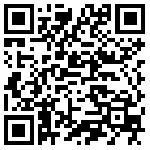科技工作者之家
科技工作者之家APP是专注科技人才,知识分享与人才交流的服务平台。
科技工作者之家 2020-01-26
来源:Nature自然科研

又到了每周一次的 Nature Podcast 时间了!欢迎收听本周由Benjamin Thompson和 Shamini Bundell 带来的一周科学故事,本期播客片段讨论改变数据收集方式,以了解数字媒体对人们的影响。欢迎前往iTunes或你喜欢的其他播客平台下载完整版,随时随地收听一周科研新鲜事。

音频文本:
Interviewer: Benjamin Thompson
Around the world, concerns are growing that our love of screens and the constant flow of information within them is having an effect on our health, and it seems that most of the stories you might see or hear suggest that it’s having a negative effect. Staring at screens is something I’ve become acutely aware of. I have a little baby back home, and I’m conscious that she’s become very interested in the phone screen I’ve caught myself listlessly scrolling through, which is not something that I want to encourage. But what effects are screens and digital media really having on our health and wellbeing? It’s tough to find any definitive evidence either way. This week in Nature, there’s a Comment article from a group of researchers who argue that the way that data on digital media consumption is gathered needs to be changed if we’re to more accurately understand its impacts. One of the Comment’s authors is Byron Reeves from Stanford University in the US. I gave him a call and started by asking him how people’s online lives are currently measured.
Interviewee: Byron Reeves
So, there are two choices if you’re doing research in this area. One is you can go into a laboratory, make a recording, design an experience that people might go through within the context of twenty or thirty minutes, you ask them questions and so this whole experimentation strategy is useful. The more interesting to most people is go out in the wild, try to figure out what people are actually doing in their normal lives, and this is where the problems really begin to occur because generally, the data across thousands of studies are questions to people about what they do with their time, like ‘Yesterday, how many hours did you spend on Facebook?’ or ‘This week, have you been a heavy or light user of your smartphone?’
Interviewer: Benjamin Thompson
And in your Comment, you highlight that this way of going about things might not be the best way of doing it.
Interviewee: Byron Reeves
It’s not the best way and we’ve been doing it a long time. We were doing it when there were only three television channels in the US and it was even difficult to do then. But think of all the things that you do just even on a smartphone device, and we’re in and out of these devices hundreds of times in an average day.
Interviewer: Benjamin Thompson
Why do you think a different method is needed to measure what people are doing on their devices?
Interviewee: Byron Reeves
If we don’t do something more granular, we’re just not going to know what people are doing in relation to the concerns that we have. So, you can name any one of these concerns. If it’s processing of news in a politician campaign or experiencing Facebook with respect to my psychological wellbeing, we can know about your wellbeing and we can know about your politics but we can’t know about what you’re doing in media in relation to those concerns without doing something like we’re proposing with the Screenome Project.
Interviewer: Benjamin Thompson
So, your Screenome Project, it hasn’t been going that long. What sort of data are you collecting and where are you planning to take it?
Interviewee: Byron Reeves
Well, we started this about three years ago. We started developing technology that we could put on people’s devices and that would allow us to unobtrusively collect a screenshot every five seconds to encrypt it, compress it, send it back to Stanford research servers and allow us to get a computer to try to analyse what they’re doing. We’ve collected about 30 million of these screenshots, and we’re trying to figure out how to do the computerised analysis of what’s in these screens from many different kinds of categories and classifications.
Interviewer: Benjamin Thompson
The way people use their phones is quite personal in many cases. Are you struggling to find people to sign up to your project? Is there any reticence at all?
Interviewee: Byron Reeves
Well, there is some reticence and there is a great deal of interest, even among those that do sign up, in exactly what we’re going to do with these data. We’re never sharing these data. We’re going through consent procedures that tell them exactly how the data will be collected and stored. We have institutional review boards that look very closely at our research. It’s vetted by privacy attorneys and cybersecurity folks. I think we find, increasingly, people are getting used to the fact that the companies that are building the products that they use are getting these data anyway in some fashion, and so they’re interested in participating in the university research project that helps.
Interviewer: Benjamin Thompson
Broadly speaking then, what sort of questions might this very granular approach to data collection help to address that maybe other collection methods have struggled with?
Interviewee: Byron Reeves
Yeah, so the questions in the past have really been about large chunks of experience, so ‘How much did you use your smartphone last week?’ What possible effects could there be versus going in and taking a look at exactly what you were doing. If you were turning your phone on and off 500 times a day to get a quick hit of excitement, looking at a post or something, doing whatever you are in these small little chunks of experience, that’s a very different kind of an effect. That actually might be more interestingly related to something like psychological addiction than information about general use over the course of long periods of time. So, you get different questions when you’re able to get a better microscope than can zoom in.
Interviewer: Benjamin Thompson
Is there the concern though that maybe with the amount of data that projects like these are able to encapsulate and to record, if there’s such granularity between people, that maybe we run the risk of missing the wood for the trees and it becomes difficult for policymakers or public health officials to make broad policies on usage and what have you?
Interviewee: Byron Reeves
Yeah, that’s a good question. We’ve got a real problem with respect to your question because the answer is that a lot of the use of this technology is quite idiosyncratic, and as researchers and just as anybody commenting on these problems, our tendency or our desire is to try to abstract something we can say about everybody and really look at these cross-pal or sub-group averages. What we’re finding though is that there’s so much content and so much you can do with these devices that really is, when you think about it, it’s not that unlikely that people would have very different routes through all that information, and that’s what we find when you actually look at the screenomes for these records of moment by moment changes, that people really do have different content that they’re interested in, they have different paces, different rhythms, and of course, while our interest is to try to say something that can be abstracted for large groups of people but I think one of the lead stories so far is that everybody is really different.
Interviewer: Benjamin Thompson
Well, you’ve collected a huge amount of data already, and what has surprised you about how people use their devices or how they look at screens?
Interviewee: Byron Reeves
What surprises us most is, when you just sit there in the research lab and go frame by frame through a smartphone day for an individual, how much different kinds of content are tangled together in short bursts of use, in ways that we never could have anticipated, so this is the most surprising thing. You find somebody on their smartphone, one of the tabs is a video conference for a work group, you quickly go out of that and send a text message to a spouse or a kid, you check the news and the sports, you might look at pornography, you might do something that you shouldn’t be doing, but you’re quickly going in and out of all these radically different forms of content. All these things are just getting a chance to influence each other within a relatively small amount of time.
Interviewer: Benjamin Thompson
Having seen these data then, do you think it’s affected how you’ve used your devices and things like that? Has it changed your behaviour in any way?
Interviewee: Byron Reeves
Yes, all of us. There are a dozen of us in the lab that talk about how it’s affected our own uses. First of all, it’s made us realise that we’re not that different from the people that we’re looking at, that when we’re working on the screen, writing a paper, we’re spending two or three minutes writing a great couple of sentences, then checking the news and checking a Facebook post, and then back in ten seconds for the next paragraph and a little bit more excited or a little less bored, and just realised that these are interesting threads that we’re able to piece together now that we never had the opportunity to do.
Nature Podcast每周为您带来科学世界的全球新闻故事,覆盖众多科研领域,重点讲述Nature期刊上激动人心的研究故事。我们将话筒递给研究背后的科学家,呈现来自Nature记者和编辑的深度分析。在2017年,来自中国的收听和下载超过50万次,居全球第二。
↓↓iPhone用户长按二维码进入iTunes订阅

↓↓安卓用户长按二维码进入推荐平台acast订阅

点击“阅读原文”访问Nature官网收听完整版播客

来源:Nature-Research Nature自然科研
原文链接:http://mp.weixin.qq.com/s?__biz=MzAwNTAyMDY0MQ==&mid=2652567076&idx=2&sn=a2fc2061f8aa5e196d6481325785b88c&chksm=80cd58aab7bad1bc437ebc575f1407d56cbbdc7ef57e4306d52ac14d27380c71da73026650be&scene=27#wechat_redirect
版权声明:除非特别注明,本站所载内容来源于互联网、微信公众号等公开渠道,不代表本站观点,仅供参考、交流、公益传播之目的。转载的稿件版权归原作者或机构所有,如有侵权,请联系删除。
电话:(010)86409582
邮箱:kejie@scimall.org.cn
浙大再发Nature,王春生Nature Energy等最新文章




重返月球 | Nature Podcast

今年热怕了?Nature子刊:别急,未来4年可能更热
华侨大学博士生首次在Nature发文




“复苏”大脑| Nature Podcast

蒲慕明院士:建设世界一流期刊关系学术创新的发言权
更好的期刊,更好的科学——中国科技峰会·世界科技期刊论坛专家观点荟萃




Science/Nature:破局人类生存困境,塑料回收技术登上Nature封面

Nature:凭空(气)发电

这篇《Nature》会发光!